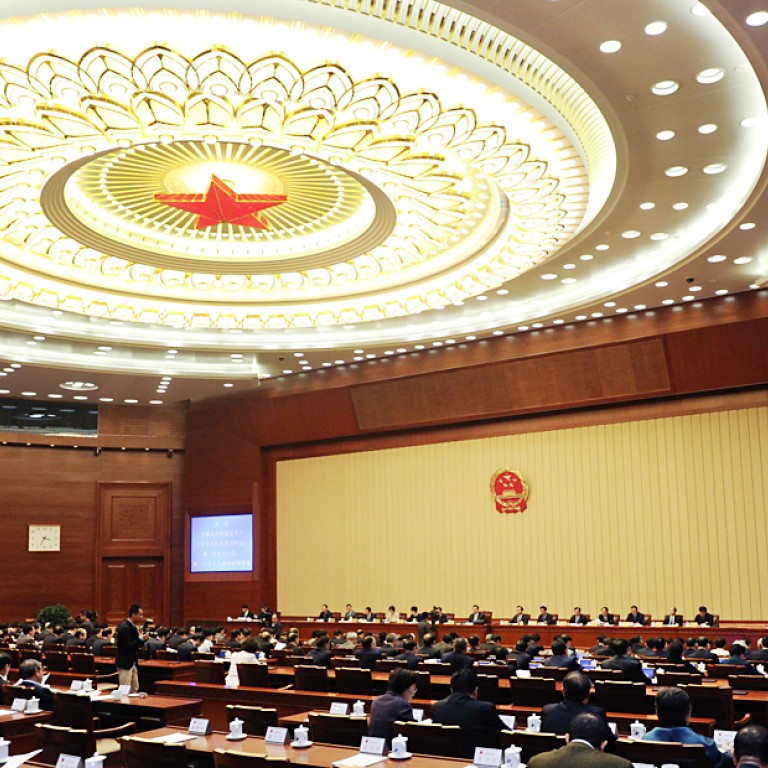
New | Beijing's decision to allow local government bond issues a welcome move, say analysts
New law, if passed, will promote more transparent fundraising and help ease problem of rapidly rising local government debt
The central government’s decision to allow provincial governments to issue bonds will result in increased oversight of province-level government finances, analysts say, and help ease the problem of mounting local government debt.
Funds raised through the bond sales could be used to partly finance construction projects that have been until now included in provincial-level governments’ general public budgets.
A draft revision to the country’s budget was tabled this week for a third reading at the bimonthly session of the standing committee of the National People’s Congress (NPC) that concluded on Thursday.
The amended law, if passed, will authorise provincial-level governments to issue bonds within a quota set by the State Council and approved by the NPC. It will also boost fiscal transparency.
“The revision would promote more transparent local fundraising, and help ease the problem of rapidly rising debt,” Jia Kang, a director of the Research Institute for Fiscal Science at the Ministry of Finance, said.
“The amended law will improve management of local budgets by allowing the central government to supervise collection and expenditure of revenue at the provincial level,” said Ma Guoxian, director of Shanghai’s University of Finance and Economics’ Centre of Public Policy.

The high level of local government debt is considered a latent danger to the mainland’s financial stability and security. In an announcement following the annual Central Economic Work Conference in December, the central government singled out as a major economic task this year the containment of local government debt risk.
The current budget law, which came into effect in 1995, explicitly banned local governments from issuing bonds unless the cabinet ruled otherwise.
In 2009, the central government allowed the Ministry of Finance to be the acting issuer for local governments to sell bonds. Until now, six provinces and municipalities were granted permission to pilot local government bond issues on their own.
But governments at all levels have been able to raise funds in recent years through bank loans or via state-owned entities called local government financing vehicles (LGFVs) to pay for a wide range of costly infrastructure projects. There are more than 10,000 LGFVs in the mainland.
International rating agencies have warned that China’s local government-related debt poses risks for banks, sovereign and local governments.
A survey by the National Audit Office found that as of June 30, last year local government debt and contingent liabilities surged to about 17.9 trillion yuan (HK$22.5 trillion), a 67 per cent rise over the previous estimate of 10.7 trillion yuan at the end of 2010.
Jia said that if local governments were allowed to raise debt through market channels such as municipal bonds, many LGFVs would become redundant.
Although bonds raised by them are counted as corporate debt, they are under direct or indirect government guarantee.
The central government said it planned to ensure that local governments could obtain funds through well-regulated channels, a strategy Premier Li Keqiang described as “opening the front doors while blocking the side doors”.
Ma said the central government can better regulate the local debt as the amended law establishes detailed procedures and criteria for local government bond sales.
Jia said the amended law would limit debt issues within quotas approved by the NPC and the central government. “As under the new law, debt proposals will only be approved if there is a stable revenue stream to cover repayments,” Jia said.

